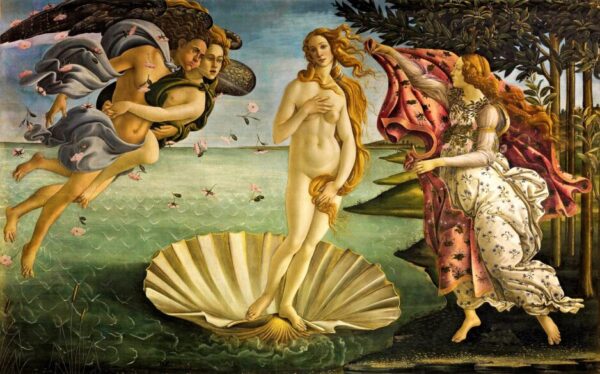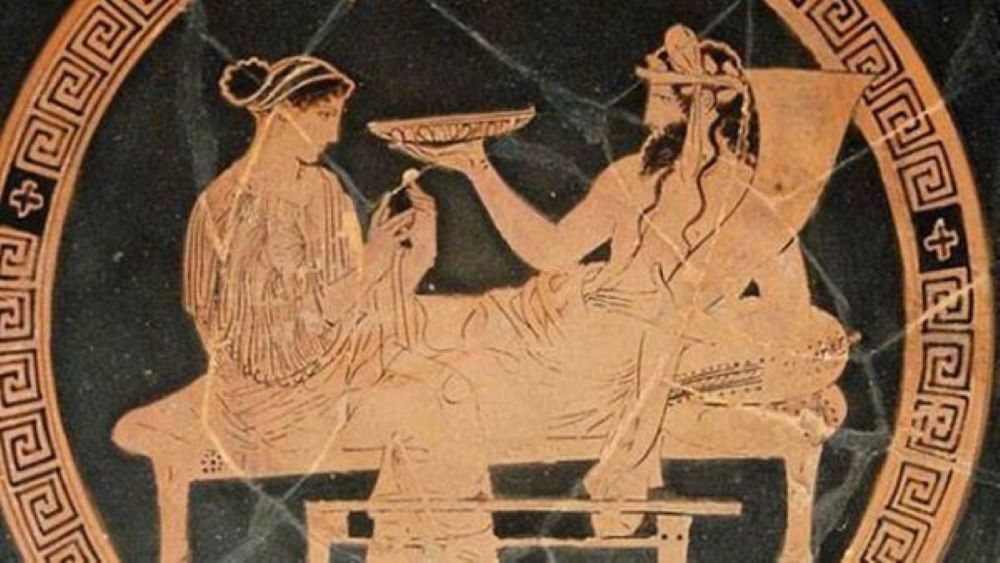By Evi Chrysoheri,
There is a side of Classical Athens that isn’t mentioned as often as all the other benefits the Classical era has offered to the world, like the democratic political system, the significant art pieces that inspired so many artists over the course of time, architectural constructions, and many more. One of the dark sides of antiquity was prostitution. Here, we’re going to analyze this phenomenon within the temporal and geographical boundaries of Classical Athens, even though those kinds of activities existed in other cities as well.
In Athens, the areas in which brothels have been located is Piraeus, the well-known port, and Kerameikos, which is also famous for its pottery workshops. It might be surprising to someone that brothels were legal and that the great legislator Solon was the one to institute them and became a model for the modern world. Additionally, Solon, the founder of democracy, legalized prostitution because he considered it a hygiene measure for the public and at the same time to assure the purity of the Athenian race. Thus, the brothels collected young girls, usually slaves, even though we have cases where poor Athenian women were involved in prostitution so they could survive. It is worth mentioning that in Ancient Athens people from poor families, or those with an unwanted pregnancy, used to expose undesirable newborns, mostly girls, abandoning them in a yard, and leaving them to die. Even a great comedian of the third century wrote, and I quote, “a boy, anyone can raise even if he is poor. A girl, you expose it to the streets, even if you are wealthy”. Those events existed in the classical era too. In those places, slave traders collected the babies and afterwards sold them to the pimps, which raised them to become slaves (or ‘pornes’, the Greek word for prostitutes, which etymologically means ‘sold’ or ‘for sale’). This term was used for the lowliest women of the last social ranks, while conversely, for the majority of women, the term ‘companion’ or ‘etera’ which translates to partner, was preferred.

Consequently, young men could release their sexual urges while simultaneously protecting the purity of women in Athens, so they could produce only genuine Athenian citizens. After prostitution was established, the state imposed a tax on brothels called ‘pornikos’ which, like other Athenian taxes, was leased annually by the Assembly. And, like every good state does, it also created laws to protect prostitutes from potential abuse by their pimps. Thus, it dispatched ten policemen, five in Piraeus and the other five in Athens, so they could watch if pimps were charging the services ‘pornes’ offered more than two drachms, or if the brothels made too much noise and bothered the neighborhood and many more authorities. Sometimes, if two clients desired the same ‘porni’, the policeman drew a lot to see which one would occupy her first.
But it will be naive to think that these activities always took place under the supervision of the state and its executive bodies. In Agora, the most popular and busy market in the center of Athens, the so-called flower shops weren’t only selling their production, but offered other services too. Another interesting fact is that in Ancient Greece, philosophers considered ‘love’ for a woman as physical lust, represented by the deity Pandemos Aphrodite, so it’s only natural that a part of the profit of brothels went for the restoration of her temple. According to Platon, the true and highest love was the homoerotic love between two free men: that explains why, in the Classical era, love for women was thought of as crude and derogatory, because it was only meant for sexual satisfaction.
It’s truly sad how underrated women were, slave trading and the flesh market, child abuse, and pedophilia flourished in antiquity. Yes, it’s the underworld of this society, but it was in this age that the values and proper supervision sometimes slipped and there was room for inappropriate behavior that went unpunished, leading to the creation of a pattern of criminal activities. Unfortunately, these phenomena still exist nowadays, but society shows zero tolerance and condemns anyone who is involved in any illegal actions.
Reference
- Cathrine Salles. “Η ΑΛΛΗ ΟΨΗ ΤΗΣ ΑΡΧΑΙΟΤΗΤΑΣ Ο ΥΠΟΚΟΣΜΟΣ“. Εκδόσεις Παπαδήμα. Athens. 2008. p. 16-27.




